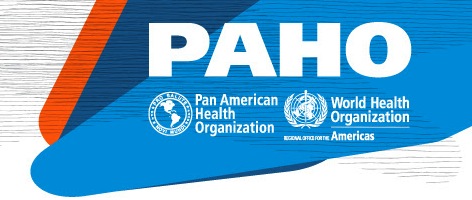PAHO director calls to contain spread of COVID-19 in vulnerable populations in border areas

| Washington, D.C., June 16, 2020 (PAHO)— The Director of the Pan American Health Organization, Dr. Carissa F. Etienne, today called countries to “work together to strengthen the health response within their territories and across frontiers,” in order to contain the spread of COVID-19 cases among migrant and vulnerable populations in border areas. “Most border towns lack robust health infrastructure, and service quality and access are often low. Due to limited hospital facilities, they often rely on labs of limited capacity and small clinics that serve communities in vast catchment areas,” PAHO’s Director said. The increases of COVID-19 transmission in these areas “is cause for serious concern and immediate action.” In the Americas, “We are fast approaching 4 million cases and the epidemic is still accelerating in the region,” she said, with almost 203,600 deaths reported from COVID-19. Currently, the United States accounts for 54% of all cases in the Americas and Brazil has 23% of all cases. “And we are not seeing transmission slowing down. That is the case in almost all countries in Latin America and a few in the Caribbean.” “While the majority of infections in the region are reported in big cities, where economic inequality and population density fuel transmission, our data show a concerning trend towards high transmission in border areas.” Etienne said in a media briefing today. As an example, PAHO remains concerned about Haiti and the Dominican Republic, that share an active border and continue to report a rise in new cases. The PAHO Director referred to a spike in transmission in the north of Costa Rica, around the border with Nicaragua, as well as in French Guiana which borders Brazil, and an increase of cases in neighboring countries such as Suriname. In addition, there is ongoing transmission in the northern states of Brazil that border Guyana and Suriname; the Amazonian region where Venezuela, Brazil and Colombia intersect; and the borders between Peru, Brazil and Colombia. Dr. Etienne said PAHO is supporting countries “to address the spread of COVID-19 in border areas, either by establishing a local presence, or by boosting the capacity of local health authorities.” She cited examples where PAHO enhanced local capacities in border areas with field offices in the Amazon, supported migrants on the Venezuela-Colombia border, and worked with UN partners in a triage center on the Haiti-Dominican Republic border. Strengthening primary care services in border areas and sharing information across borders are important steps countries can take to improve the response to COVID-19, Etienne said. “Emergency facilities and surge personnel will be needed to back up local capacity during the pandemic” in border communities and among transient populations, and information on prevention must be shared in languages and formats that various cultures can understand, she added. The PAHO Director called for partnership and cooperation to address the issue in the Region of the Americas and highlighted the need for “solidarity towards the communities most affected by the virus”. “These are day laborers, migrants, and people who rely on the informal economy each and every day to survive. They are among the most vulnerable to COVID-19, and the least likely to receive care. We have a responsibility not to leave them behind,” she said. Stigma and discrimination toward migrants or day laborers most vulnerable to COVID-19 “have no place in our region. Not now, not ever, and especially not amid a pandemic. I count on all Member States to uphold these values, so together, we can beat our common enemy: COVID-19,” the PAHO director said. |
| Links Director’s remarks during media briefing: https://www.paho.org/en/media/weekly-press-briefing-covid-19-situation-americas Recording of media briefing (original audio): https://youtu.be/SxSIx0od3g4 Recording of media briefing (English): https://youtu.be/nO-ilygj8Gk PAHO Covid-19: www.paho.org/coronavirus |




